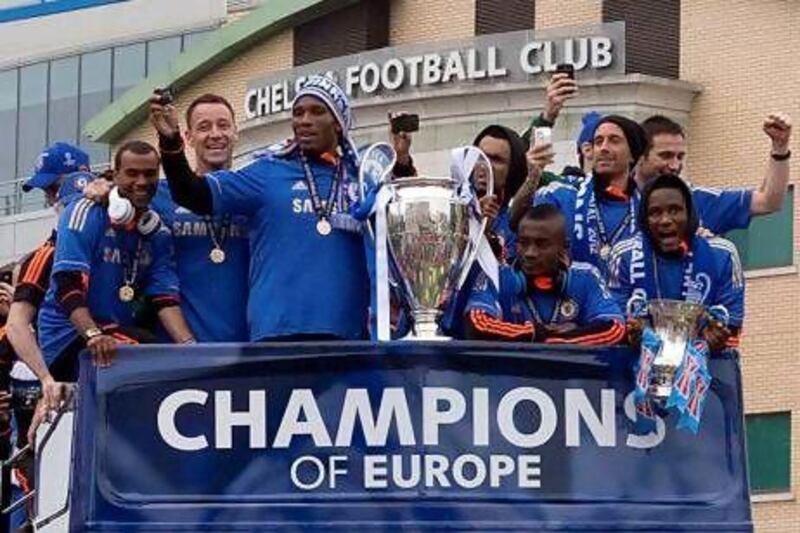Munich springs surprises in the Champions League. Perhaps Bayern should have been more wary of the city's habits. The last club to triumph there in a European Cup final before Chelsea's victory had been Borussia Dortmund.
By coincidence, Dortmund were also the last club, before Chelsea, to watch their name being engraved on the trophy for the first time.
It is one the enigmas of this competition: clubs struggle to retain it - nobody has, since AC Milan in 1989 and 1990 won it in successive years, and it was still known only as the European Cup then - yet it circulates stubbornly among an established elite of heavyweights.
Dortmund broke that sequence in Munich in 1997; Marseille became the only French winners, beating Milan in Munich in 1993, but apart from those two, every champion since 1992 has been a club who already had a replica of the so-called "Big Cup" in their prize cabinet, the likes of Real Madrid, Milan, Liverpool, Manchester United, Bayern, Barcelona and Ajax.
So Chelsea's triumph will be applauded well beyond London, a city that now has its first European Cup. All those clubs who tend to look with envy at the older superpowers now know the older elite can be toppled, with sustained financial investment, by offering high salaries to players, and with some underdog gumption on the pitch.
Chelsea 2012 are not like Dortmund in 1997. The German club ran up massive debts after their only Champions League success and came close to bankruptcy. Roman Abramovich, the Chelsea owner, is a personal guarantor against that happening to Chelsea. Having landed his targeted prize, after nine years, he is hardly likely to lose interest now.
"I can tell you, he seemed very happy to me," said Roberto Di Matteo, the interim Chelsea manager, after Saturday's win over Bayern on penalties.
When Abramovich bought the club in 2003, it was a novelty. Since he has done so, other wealthy men have followed his strategy. Manchester City, who have just won the English Premier League, at the third attempt since they came under Sheikh Mansour bin Zayed's ownership, will go into their next Champions League campaign emboldened by seeing how that prize can be in the grasp of clubs without a long, dynastic history of winning it.
So may Paris Saint-Germain, another club who have "done a Chelsea" over the past 12 months, since a Qatari sovereign fund took a major shareholding in the French club.
Like Abramovich, their new owners spotted glamorous potential in a club from a famous European capital city; like Abramovich, PSG's new magnates ploughed big money in immediately, to recruit and wage talented foreign footballers. Like Chelsea, their ambitions are now firmly set on Europe's principal competition.
Expect some big spending from the most upwardly mobile club in Spain, too. Malaga are busy styling themselves as sort of Chelsea of the Costa del Sol.
Sheikh Abdullah bin Nasser Al Thani, a Qatari royal, bought the club two years ago and, with a net spend over the last 18 months that exceeds those of Barcelona and Real Madrid in the same period, has hoisted Malaga from a battle against relegation to fourth place in the Spanish top flight. That books them a debut in the Champions League, an adventure for which Malaga will arm themselves with a clutch of new players.
City, PSG and Malaga have their own ways of doing business, their own distinct histories and football cultures, but the way they have suddenly elevated their ambition and status echoes strongly what Chelsea set about doing nearly a decade ago. As Abramovich basks in the glory of Munich, he can consider himself a pioneer, whose initiative, for all its extravagances, is being followed elsewhere.
Follow us
[ @SprtNationalUAE ]






